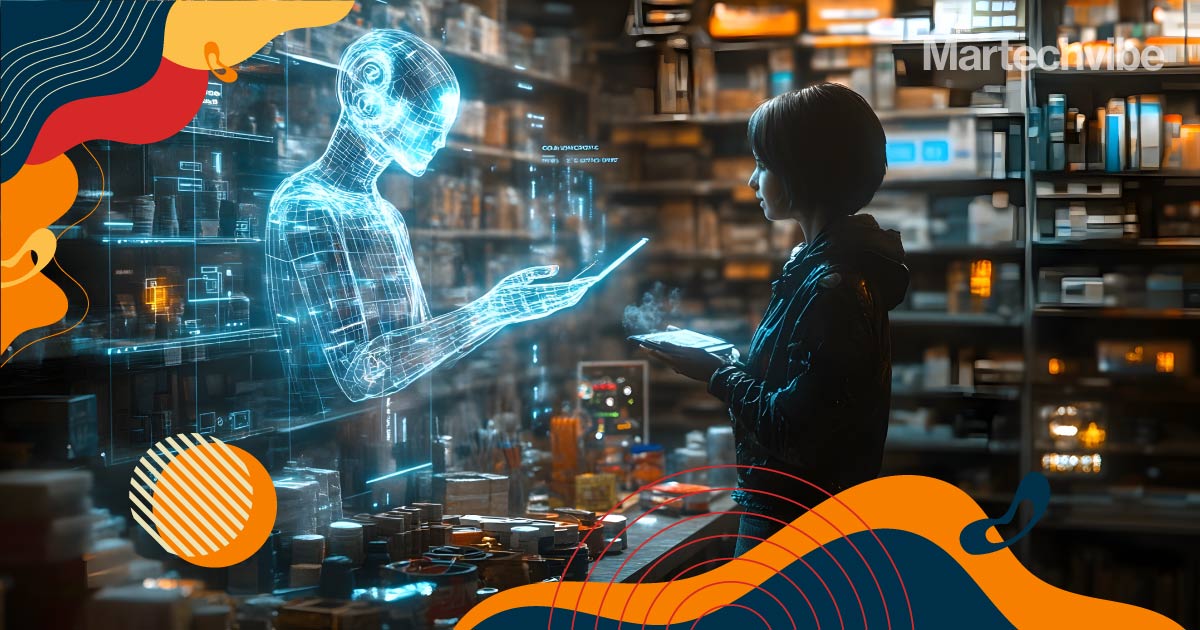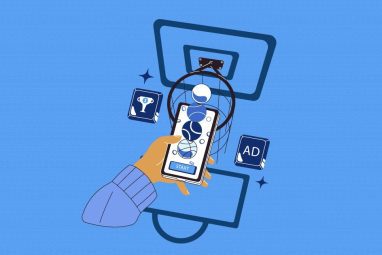How Can Retailers Build A Loyalty-Led AI Revolution?
AI has the potential to enhance or achieve strategic loyalty initiatives retailers have long sought—true one-to-one marketing and customer interactions, the genuine ability to influence purchasing decisions at the moment, and an effective lever for incremental spending.
What to Read Next
- Structured Unveils AI-Native Partner Marketing Execution Platform
- Sinch Introduces Agentic Conversations to Scale AI Agents Across Channels
- Precisely Expands Data Integrity Suite with New AI Agents
- OUTFRONT Media Signs Multi-Year Partnership with AdQuick
- Freestar Introduces pubOS, a Unified Publisher Operating System

How much do consumers truly value their experiences and engagements with a retailer? Are they shopping solely on price? And is loyalty fading?
Even when it might seem like price considerations could threaten loyalty, experiences still matter. Consumers crave more in-depth, personalised experiences and are willing to pay for those experiences with their data. A PwC survey on loyalty found that 4 in 5 consumers will share their personal information in exchange for a better customer experience.
So the question becomes, how can retailers leverage that willingness to transform the weekly shop (or occasional browsing) into the individualised experiences consumers want, experiences that drive loyalty?
The answer lies in leveraging data and artificial intelligence to supercharge personalisation in promotions, gamified loyalty experiences, and other customer engagement touchpoints, including subscription programs. AI can powerfully impact achieving advanced personalisation across these elements, enabling retailers to deploy them more effectively and at scale.
Let’s look at how AI can create those compelling experiences shoppers seek, starting with personalised promotions.
#1. Using AI to Achieve Personalisation at Scale
The most critical area in which AI can support retailers is enabling them to create personalised promotions at scale. This aligns with consumer expectations; according to McKinsey, 71% expect personalisation, and 76% are frustrated when they don’t get it.
AI helps retailers move from mass promotions that apply to everyone to intelligent promotions based on individual customer segments. The industry was already trending toward ever-finer segmentation. Still, AI can leverage its superior data utilisation to achieve that holy grail of customer-brand experiences: authentic one-to-one engagement.
Under a 1:1 personalisation model, retailers deliver real-time offers specifically for the individual. With AI-powered tools, retailers can generate these offers from a near-infinite offer pool and do it instantaneously, at the precise moment that will influence a sale or specific action. These tools use existing data but can account for contextual triggers to unlock new purchasing opportunities.
This application of AI helps boost redemption rates and incremental revenue and enhances the customer experience by creating individualised promotional interactions. The retailer demonstrates that it knows what customers want and delivers added value.
#2. Loyalty-integrated Gamification Powered by AI
Retailers can also show that they recognise what customers value through loyalty engagements. A shopper opting into a loyalty program is, in some ways, already seeking a deeper relationship with a retailer; AI-enhanced personalisation can help deliver the relationship they want. Last year, Eagle Eye surveyed consumers globally and found that most will join loyalty programs to save money; personalised discounts and offers can help them do that. The survey also found that two-thirds of consumers are seeking gamified experiences within the loyalty programs they belong to. Personalised challenges and games within the loyalty program can deliver on both fronts.
AI can boost this experience further by analysing a shopper’s purchase history, loyalty information, dietary needs and desires to present challenges and offers that reflect the individual’s preferences and priorities. This marriage of personalisation and gamification inside loyalty programs is ushering in a new way for retailers to build a stronger customer experience. Tesco in the UK recently introduced its Clubcard Challenges, a program that delivers unique challenges for loyalty members to complete and receive personalised rewards.
By gamifying a loyalty experience, retailers engage consumers beyond the transaction with customised promotions, challenges, and rewards tailored to individual preferences. This approach transforms loyalty interactions into one-to-one experiences with the consumer.
#3. Bringing AI-powered Personalisation to Subscriptions and Memberships
Gamification isn’t the only area where AI can significantly impact. Subscription programs, which either augment or offer an alternative to traditional loyalty programs, are another tactic that gets a boost from AI and personalisation. Subscribers pay a monthly or annual fee to join in exchange for instant benefits like discounts and exclusive products and events. For example, in April, Target introduced its subscription loyalty program, the Target Circle 360 program, which gives members personalised rewards and additional value, such as extended time for returns.
Just as shoppers are willing to share personal information for a better customer experience, they also pay a monthly fee for a more personalised and valuable loyalty experience. Meanwhile, brands gain predictable income and richer customer data.
AI can personalise subscription offerings based on individual customer preferences and purchase history. It can also identify customers at risk of cancelling subscriptions, allowing retailers to intervene with targeted incentives. By promising a more personalised experience, retailers can transform these programs into significant new revenue streams.
AI allows retailers to anticipate consumers’ needs, recommend products they’ll love, and create relevant loyalty rewards. It can power games and challenges that keep customers engaged and deploy bespoke offers that are highly likely to be redeemed. In many ways, AI has the potential to enhance or achieve strategic initiatives retailers have long sought—true one-to-one marketing and customer interactions, the genuine ability to influence purchasing decisions at the moment, and an effective lever for incremental spending.
That’s why, despite the hype, AI is a transformative development for retailers, and we have only scratched the surface.









































































































